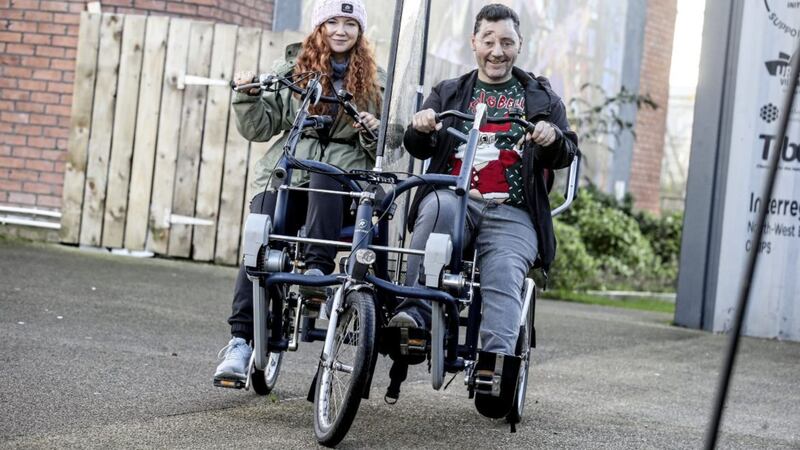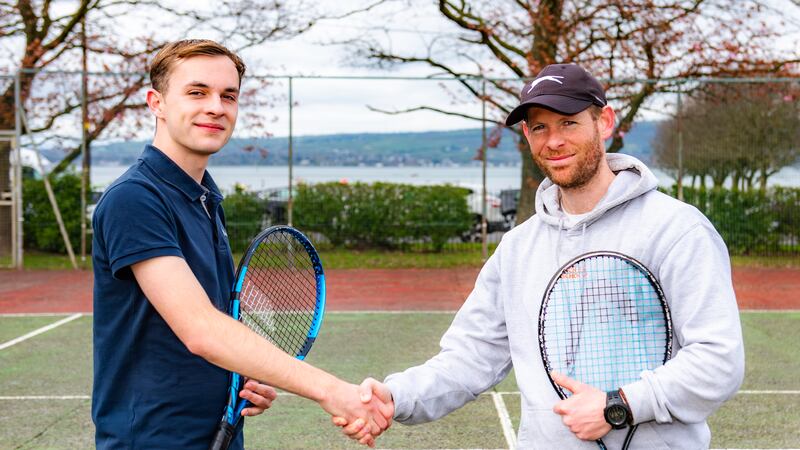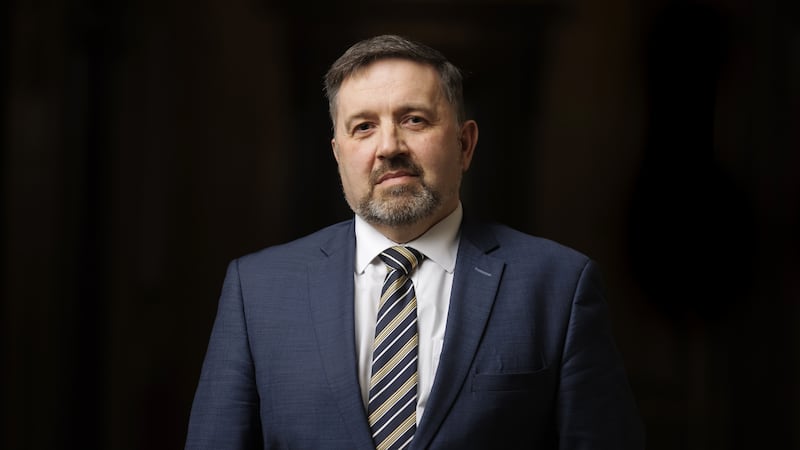WHEN Co Fermanagh mum Sarah Moon wrote a children's Christmas story for a small online group last year, little did she realise it would make it into print and become a lasting legacy of living positively with an acquired brain injury.
Rua's Sore Head is the heartwarming story of reindeer Rua who has an accident and is worried that he won't be able to help Santa on Christmas Eve - only for the pair of them to come up with an ingenious plan to ensure Rua won't be left out.
For Sarah, who has an eight-year-old son with an acquired brain injury, the story represents what would happen in an "ideal world" as Rua (Irish for 'red' or 'red-haired') experiences love, support and inclusion.
And it's a message which will resonate beyond those who have suffered a head injury, to anyone who feels 'different', whatever the reason.
"The essence of the story is that Rua's needs are unique but he is still accommodated and appreciated for who he is, despite having these extra challenges and facing new circumstances," says Sarah, a parent representative on the board of charity Brian Injury Matters (BIM).
Sarah and husband David first contacted the charity at the end of 2019 for advice and help with their son's social and emotional challenges and needs. He suffered a brain injury in 2013, when he was still an infant.
"We had a lot of support around his physical development, but there was always a bit of a gap between that and his psychological needs," Sarah explains.
"A brain injury can have so many different effects. For my son, it would have been perception and processing issues, understanding feelings and emotions.
"You would have noticed his reactions to things were slightly different to his siblings."
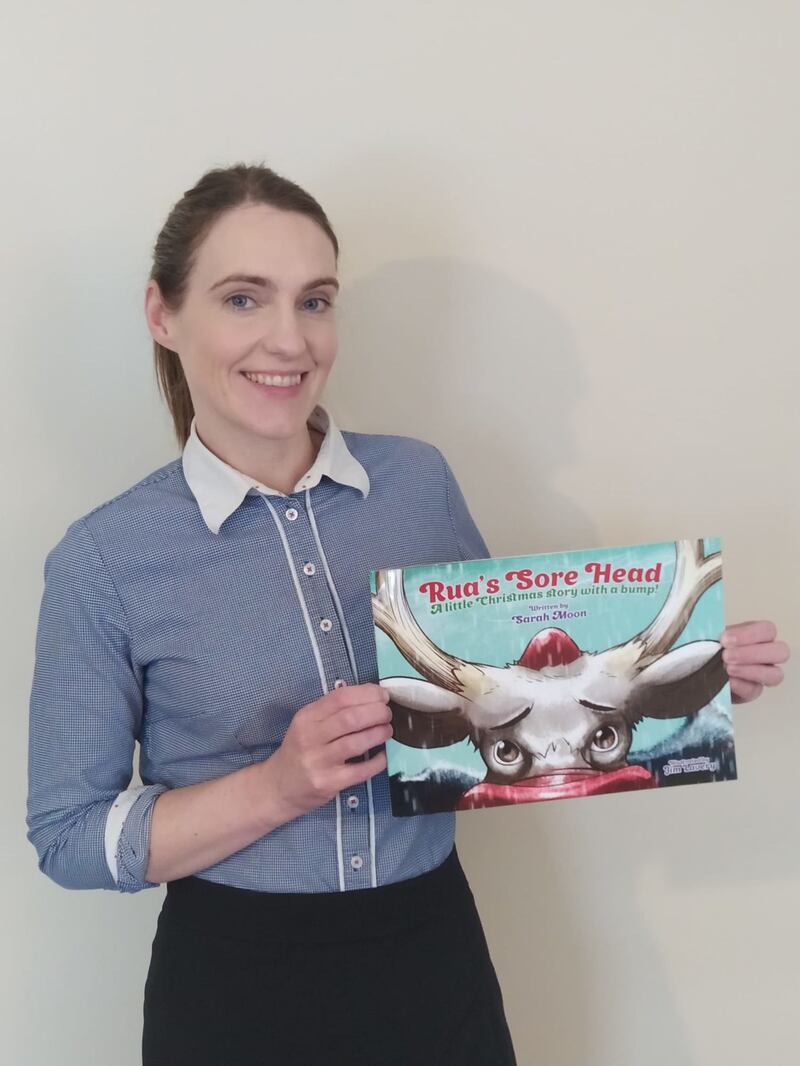
Charity staff travelled from Belfast to the family's home in Bellanaleck and worked with them to address the issues and work out a plan and goals.
"That is one of the blessings of Brain Injury Matters, they deal with the whole family," says Sarah.
"It was very much done through play, using different toys and activities. It was about letting our son be in control and be a leader. We saw a lot of growth in his emotional wellbeing."
Attending social gatherings and meeting other families going through the same experience is another major benefit for those using the services of Brain Injury Matters.
And it was while thinking of an idea to contribute to the charity's online Christmas festival that Sarah came up with the idea for the story.
"I had read the boys a bedtime story one night and it just dawned on me when I finished that I wasn't aware of a story that a child like my son could relate to," she recalls.
"I wanted to try and address the same challenges I saw him going through. Rua is worried about remembering the directions and the addresses of all the homes they'll be going to, and about flying around the world when he's too tired because of his injury.
"One of the other themes is Rua being concerned he is going to be forgotten about, or replaced, and the story is reinforcing the idea that just because there's been a change it doesn't mean you're going to be forgotten about."
Such was the positive reaction to the story among staff and other service users that the charity's engagement manager Treasa Rice applied and secured funding for a book from the National Lottery's Community Fund.
Brain Injury Matters has had a long-standing funding relationship with them since 2012.
The book, which was launched earlier this month at The MAC in Belfast, has been beautifully illustrated by artist Jim Lavery who included ideas from other children who use the charity, including designs for some of the elves and the reindeer.
"Jim Lavery was excellent. We have a puppy at home and he drew the puppy in the book, as well as sneaking in pictures of a family teddy bear," says Sarah, who works in South West College.
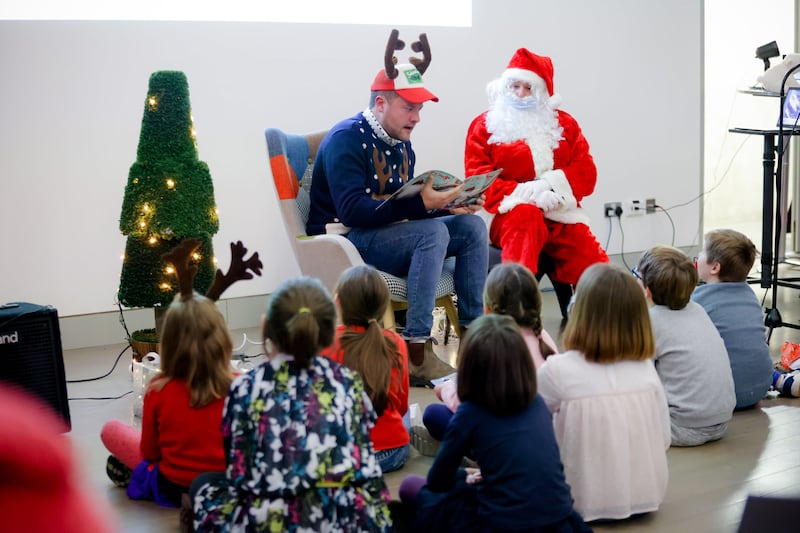
Although the Moon family are not using the charity's services at present, they known they can access them at any time in the future, which Sarah describes as "so reassuring". She also says the peer-to-peer support has been invaluable.
"There's a great deal of respect and admiration between the families who use the services. They really have managed to create a community," she says.
Treasa Rice, meanwhile, says sustaining a brain injury is a "massive, life-altering" event not just for the person involved but also their entire family.
And she explains that it can result not just from a fall but from strokes, brain tumours, car accidents, assaults, meningitis, a viral infection and even an event like near-drowning when the brain is starved of oxygen.
"Nobody's injury is the same as anybody else's. Some people might have a lot of physical issues and have to use a wheelchair or walking aids and there are others we would class as having a hidden disability such as memory loss, fatigue or disinhibited behaviour," she explains.
"Things that seemed so simple before the brain injury, like going to the shop to buy milk, can become very challenging.
"There are people who have been coming to our service for years and are still getting benefit from it.
"We have one guy who used the project and is now a volunteer. He was in a bar when a row started beside him and he was hit on the head. He does fantastic work for us now."
Brain Injury Matters, which was established in September 2013 as a regional service, supports around 200 people annually across Northern Ireland.
Its adult wellbeing service provides holistic, long-term community support and rehabilitation through creative arts, physical activity and sports, leisure, and self-care management - all of which continued online despite Covid.
The objective is to develop individuals' confidence and self-esteem and give them a sense of purpose and independence.
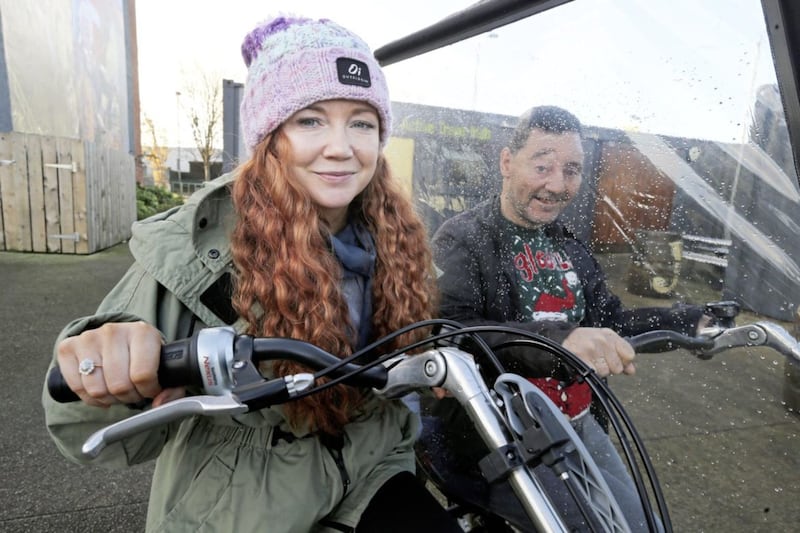
Among the projects is Pedal Power - funded by the Halifax and the Peter Harrison Foundation and delivered in partnership with Sustrans - which enables participants to enjoy a cycle on adapted, dual-seat bikes around Belfast every Friday morning.
"Some people have commented it really helps their knees and hips, balance and even core strength as well," says Treasa.
"There's a social aspect to it too as they meet peers with a brain injury. It's a way of sustaining and building relationships which all helps with emotional wellbeing."
Meanwhile, the Family First programme, for children and young people, is funded by the National Lottery and works in collaboration with Belfast Health and Social Care Trust to address the complete spectrum of a family's particular needs.
As was the case with the Moon family, the team works with the family within their home, and also in schools as well, to assess how teachers can support children with an acquired brain injury.
The charity has also worked with the Youth Justice Agency on issues such as the One Punch campaign, and the life-changing consequences such an act may result in.
Meanwhile, Rua's Sore Head, and its message of inclusivity, is being supported by the Education Authority, with the book being delivered to more than 900 schools in Northern Ireland.
A copy of Rua's Sore Head can also be obtained by phoning Brain Injury Matters on 028 9070 5125 or emailing info@braininjurymatters.org.uk and making a donation to the charity.
